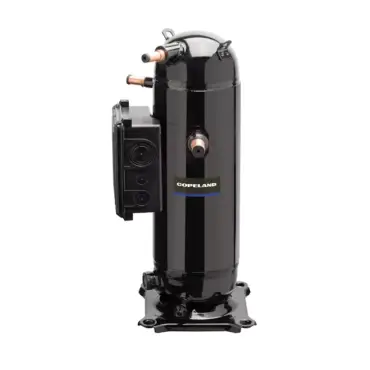Your air conditioner (AC) can do several things––keep your Washington home’s indoor air cooler than outdoor temperatures, help to keep indoor airborne allergens at bay, and help keep your home’s humidity low. But one thing it can’t do is kill mold.
It can help prevent mold, but once it exists, your air conditioner can’t kill it. If you find mold exists somewhere in your heating, ventilation, and air conditioning (HVAC) system, particularly in your air conditioner or ductwork, call Foss Heating & Cooling for assistance. We can guide you on ridding your home of the mold and help maintain your HVAC system to prevent the mold from recurring.
How Does Mold Occur?
Mold needs a damp, humid environment to breed. That means water is part of mold’s equation. Remove the water, and mold can’t live. According to the US Environmental Protection Agency (EPA), mold already exists in all homes, even in your Mount Vernon home. But in most cases, it exists on such a small scale that it’s not noticeable or a health risk. It’s when that damp, humid environment is introduced that mold grows.
This mold-ideal environment can be introduced because of an unknown or ignored leak somewhere in your home or high humidity. Air with over 70 percent humidity is a definite breeding ground for mold. Once the mold begins to grow, the spores can travel through your home’s air causing allergen issues. A small leak in your HVAC system or ignored air conditioner drains and pans, evaporator coils, or air handlers could very well be an origin of mold.
How Can My Air Conditioner Prevent Mold?
As already mentioned, mold thrives in damp, humid environments. Your air conditioner is designed to help dehumidify your home, removing excess moisture and preventing mold’s growth. So keeping your air conditioner running in humid weather and situations is a proactive step to take.
Mold also likes stale air. Running your air conditioner provides proper ventilation and airflow in your home, thereby preventing mold’s growth again. If you decide to leave your home during high temperatures or high humidity for more than a few days, it’s advisable to leave your air conditioner running with the fan set to ON, though you may be tempted to save a little energy and turn it off. The tradeoff in mold prevention in your home is well worth the amount of energy you would have saved.
What Do I Do If I Spot Mold?
Even if you take the proper precautions against mold in your home, you may still come across it, maybe on your air conditioner itself. What should you do?
There are times you can clean mold yourself, when there’s only a small amount. But sometimes you need a professional, as mold spores can be a health risk. It’s not uncommon for HVAC air handlers, evaporator coils, and condensation pans to have mold. A professional, like ours at Foss Heating & Cooling, can take care of that mold during a regular air conditioner maintenance visit and explain how to avoid its recurrence.
Call Foss Heating & Cooling Today
Call and speak to one of our certified experts at 360-336-1517 with any questions you may have or request service online. We are here in Mount Vernon, WA, to help you with all your air conditioning needs whether you need a repair, replacement, or maintenance. Our professionals are highly trained and experienced to address whatever issue you may have.
Whether you require installation, repair, or maintenance, our technicians will assist you with top-quality service at any time of the day or night. Take comfort in knowing your indoor air quality is the best it can be with MOE heating & cooling services Ontario's solution for heating, air conditioning, and ventilation that’s cooler than the rest.
Contact us to schedule a visit. Our qualified team of technicians, are always ready to help you and guide you for heating and cooling issues. Weather you want to replace an old furnace or install a brand new air conditioner, we are here to help you. Our main office is at Kitchener but we can service most of Ontario's cities
Source link



Add Comment